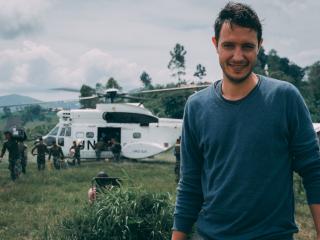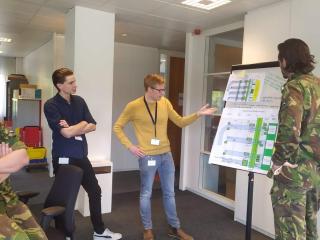Nobel Peace Prize awarded to World Food Programme
On December 10, the World Food Programme (WFP) of the United Nations received the Nobel Peace Prize from the Norwegian Nobel Committee. Tilburg University’s Zero Hunger Lab is delighted with this recognition. It has worked together with the WFP for years.
The WFP received this Prize for its contribution to stability and peace by providing food for refugees and after disasters.
Prof. Hein Fleuren, one of the founders of Zero Hunger Lab, says he is thrilled that the World Food Programme has won this Prize, “not only because they do very good work, but also because this will raise awareness of the increasingly great problem of hunger in the world.”
Zero Hunger Lab and World Food Programme
Zero Hunger Lab has worked together with the WFP for more than eight years. By building and optimizing mathematical models, researchers have succeeded in improving the emergency aid. This has resulted not only in better logistics but also in a more optimal food basket. Since this year, there has been more interest in food systems and in how we can use mathematics to make them more sustainable.
Koen Peters, an alumnus and external PhD researcher at Tilburg University, is affiliated to both Zero Hunger Lab and the World Food Programme. He works as a data scientist at the WFP in Rome on mathematical models to make humanitarian operations better and more efficient. As a consultant, he makes the models accessible for staff who are non-experts in data science. He is very pleased that the World Food Programme has been awarded this Prize: “COVID-19 has made this one of the most difficult years for our work so far, so this Prize is a great boost to the morale of all my colleagues!”
More information on the Zero Hunger Lab
Zero Hunger Lab is made possible thanks to donations from alumni to the Tilburg University Fund.
Date of publication: 18 December 2020



